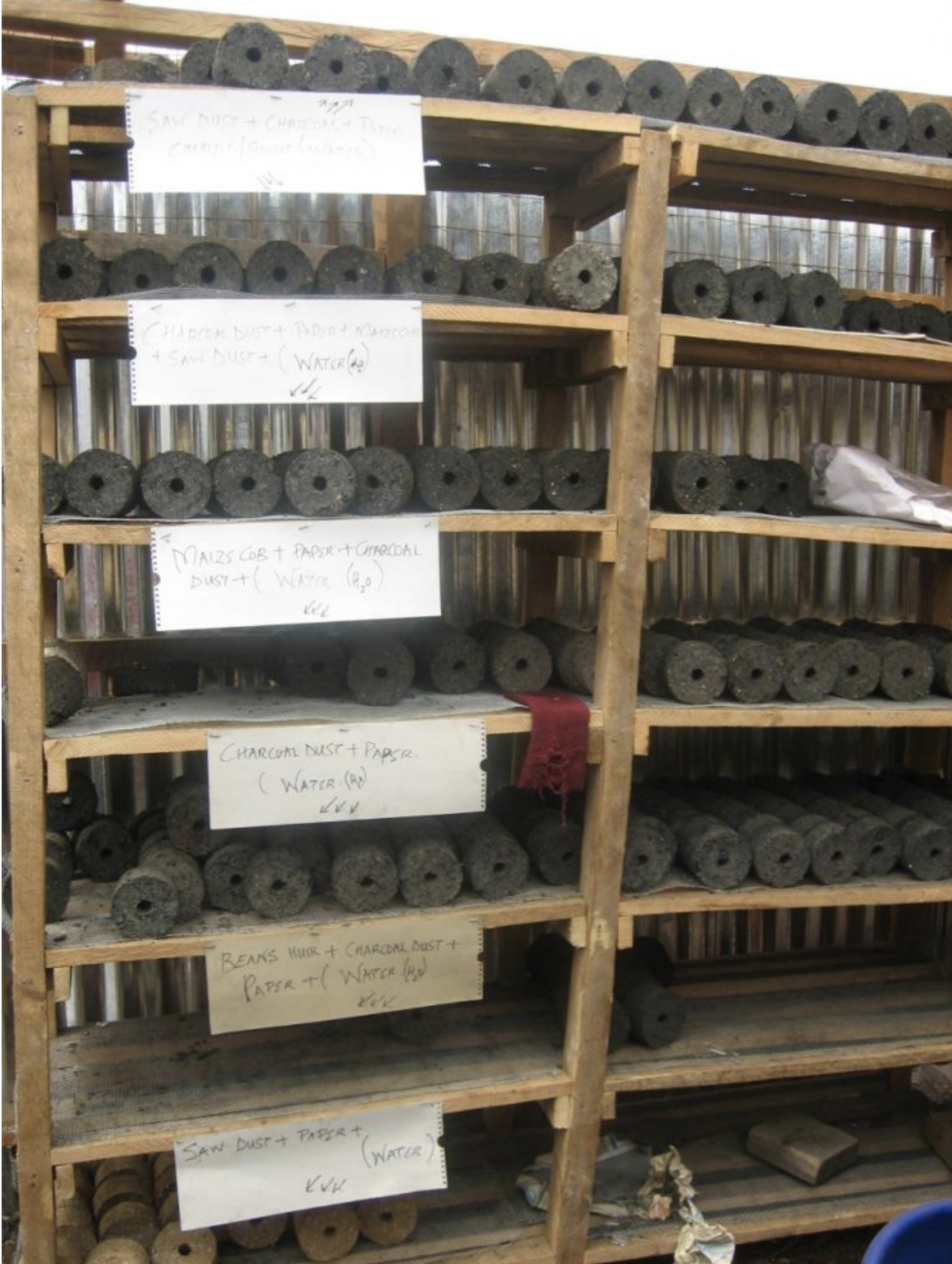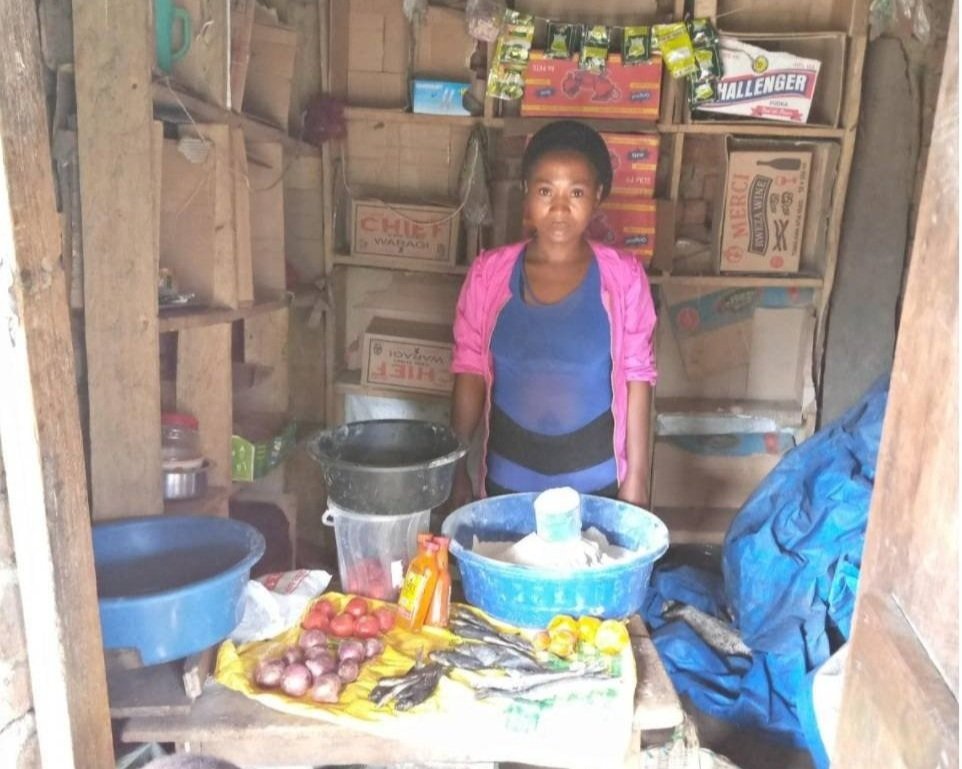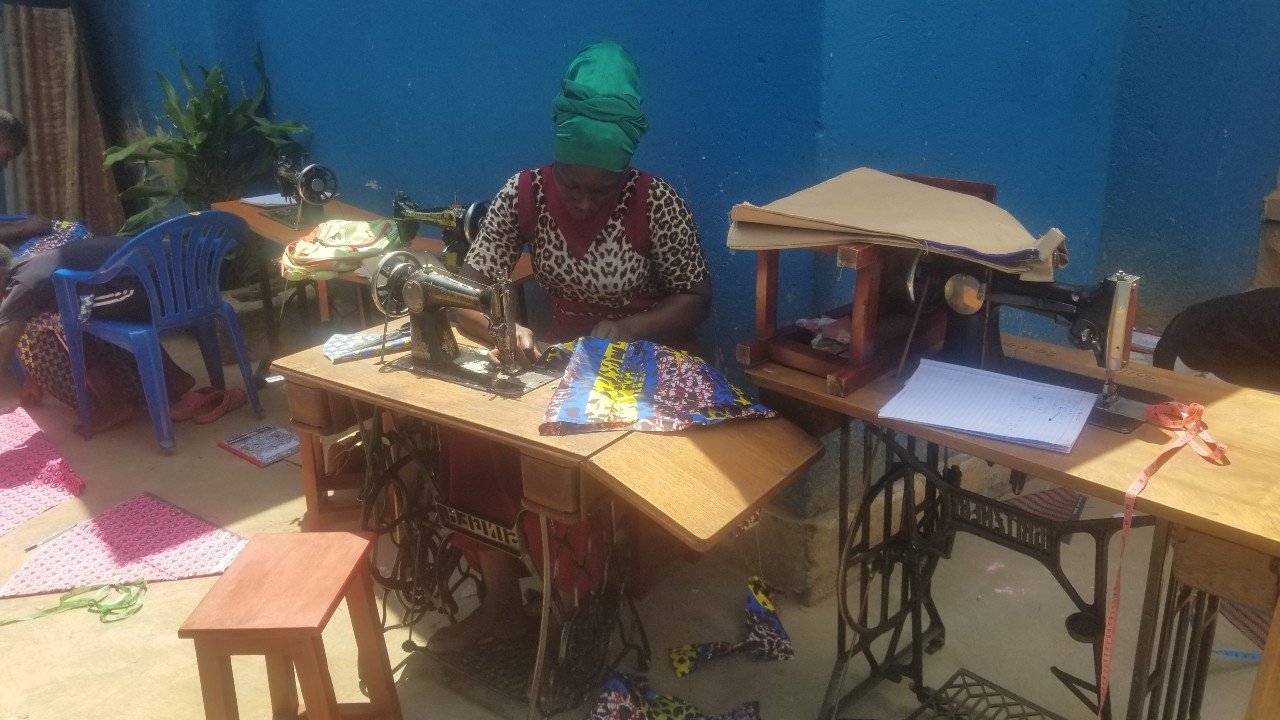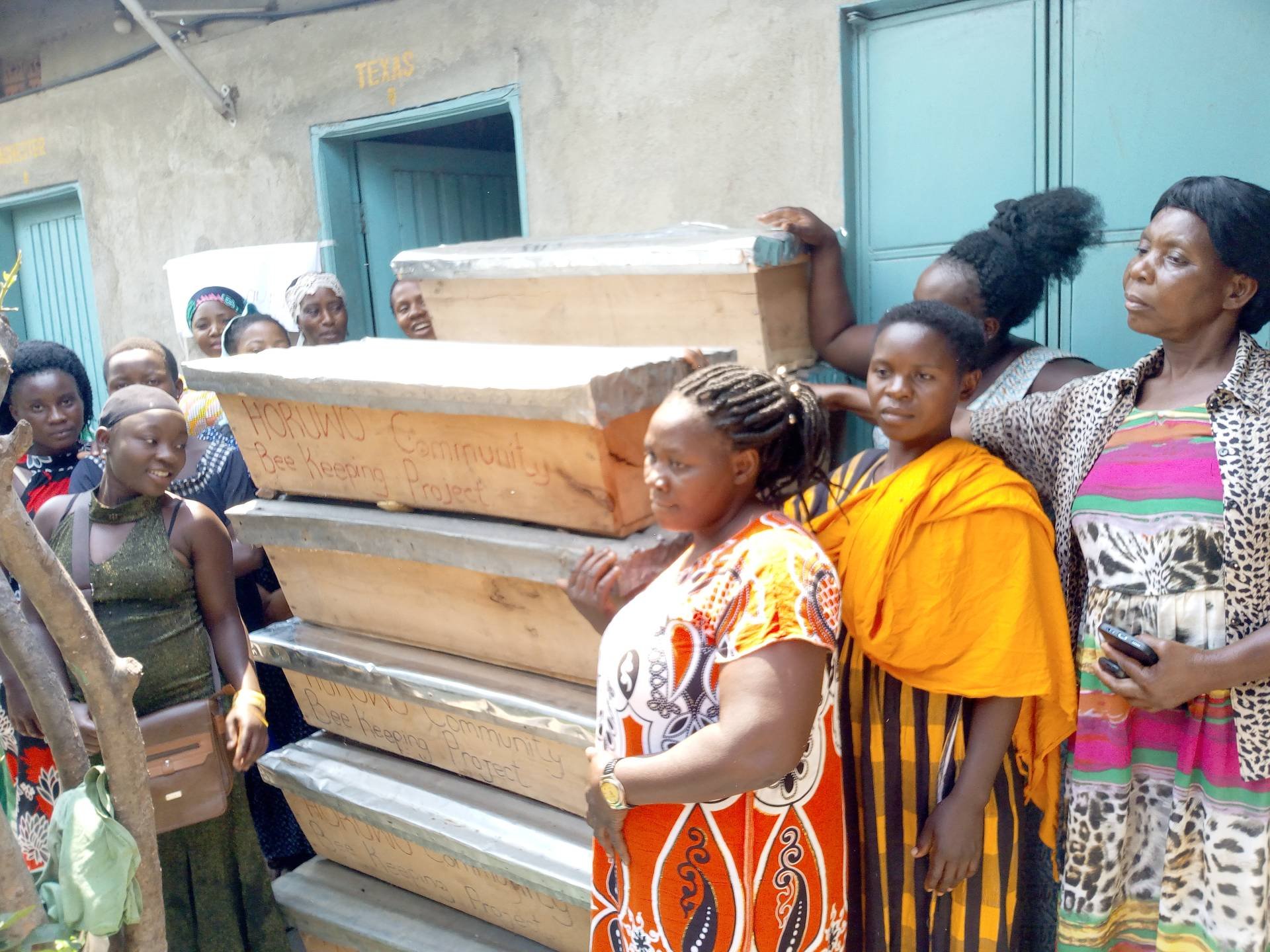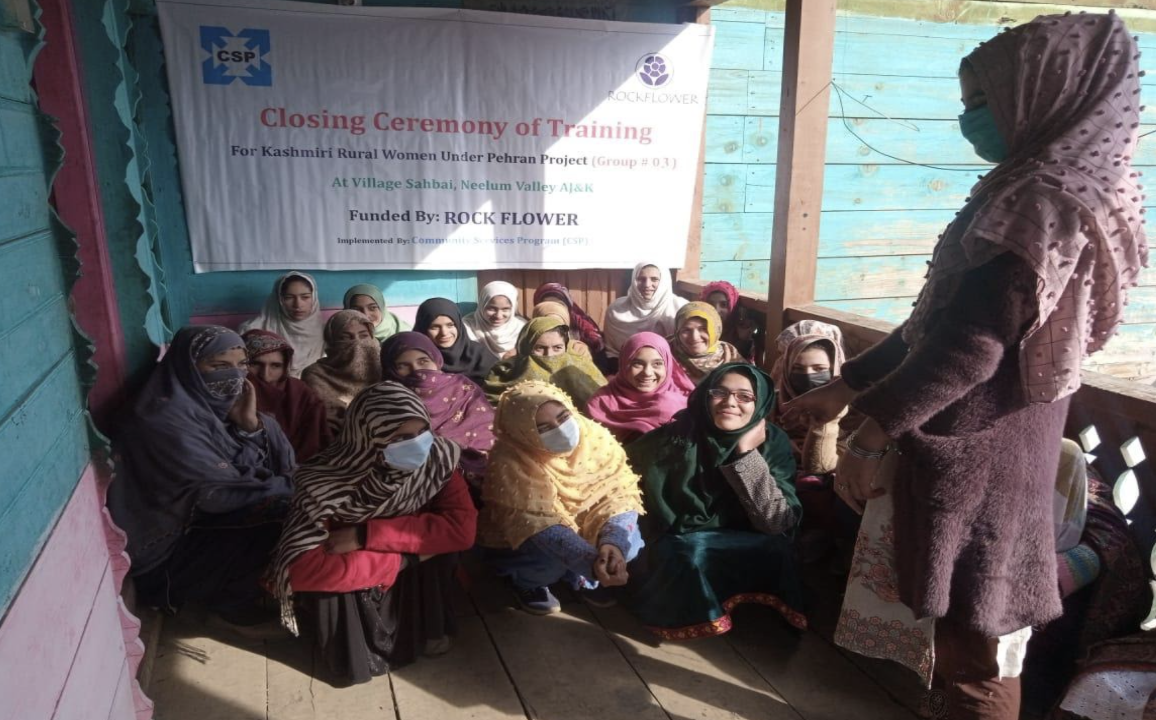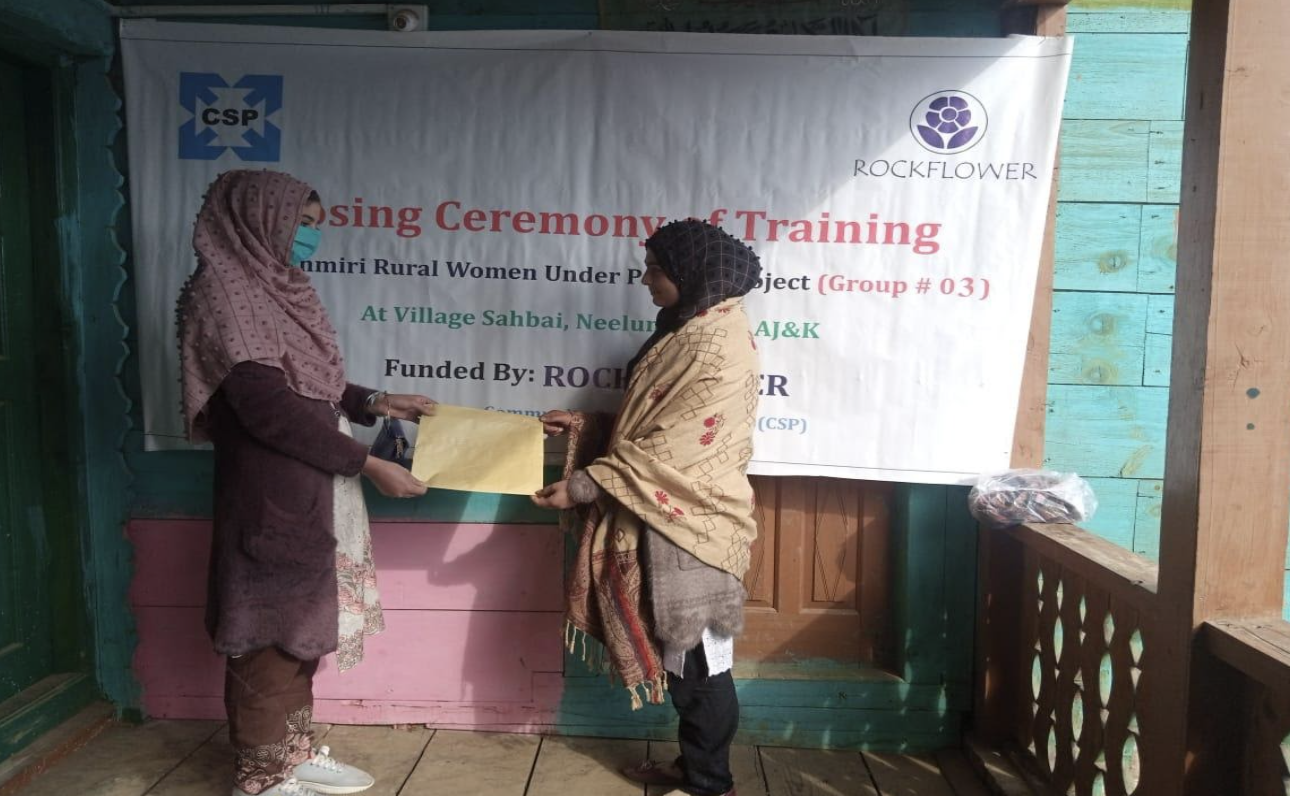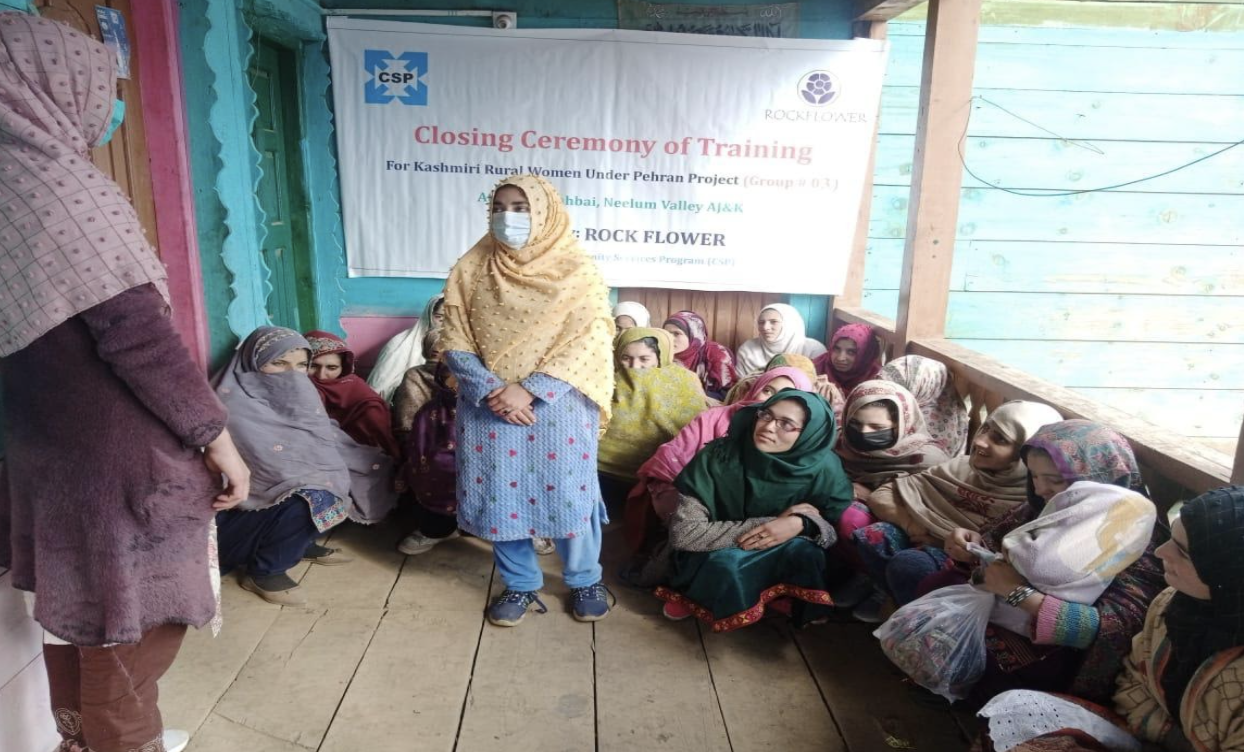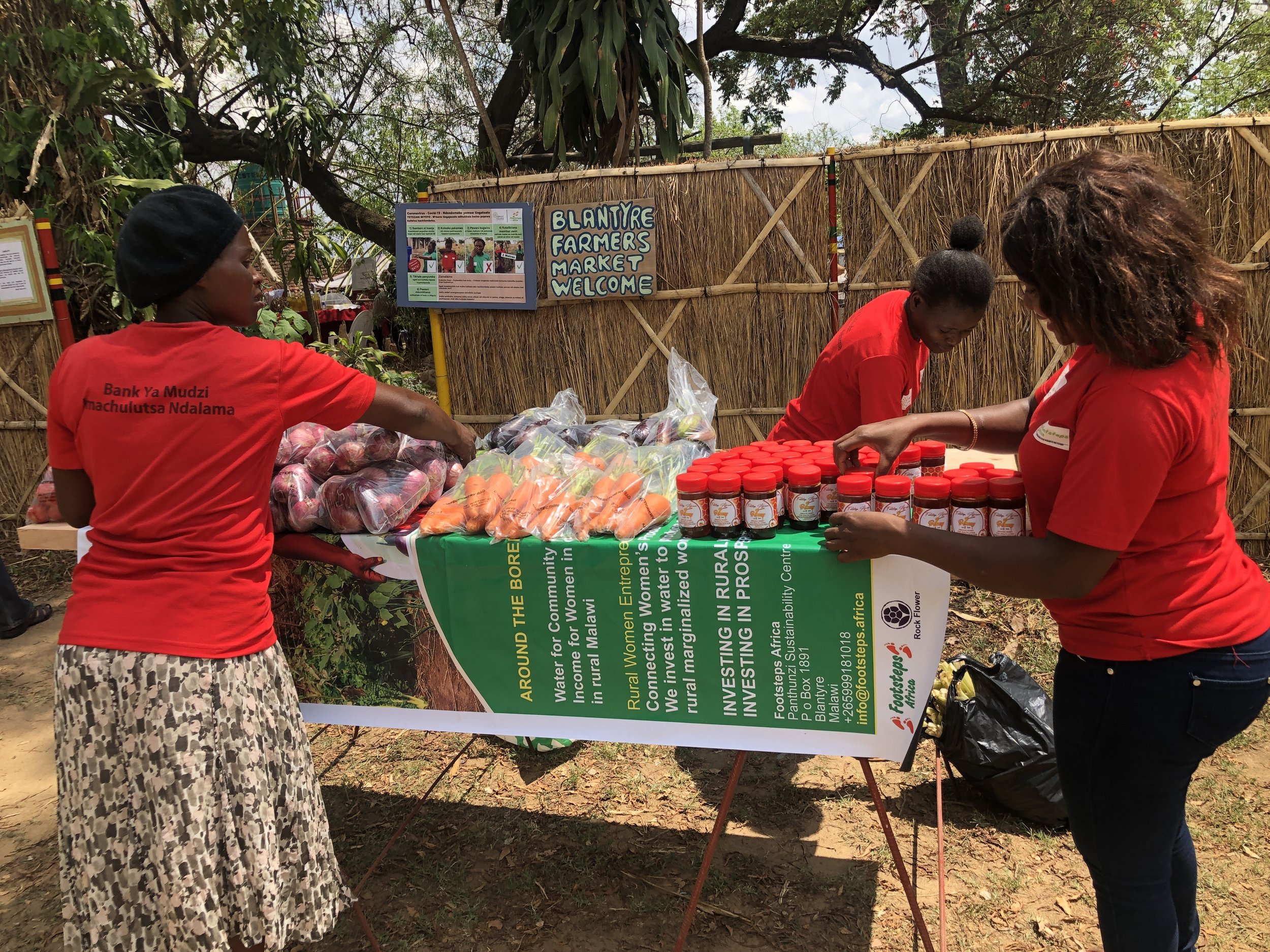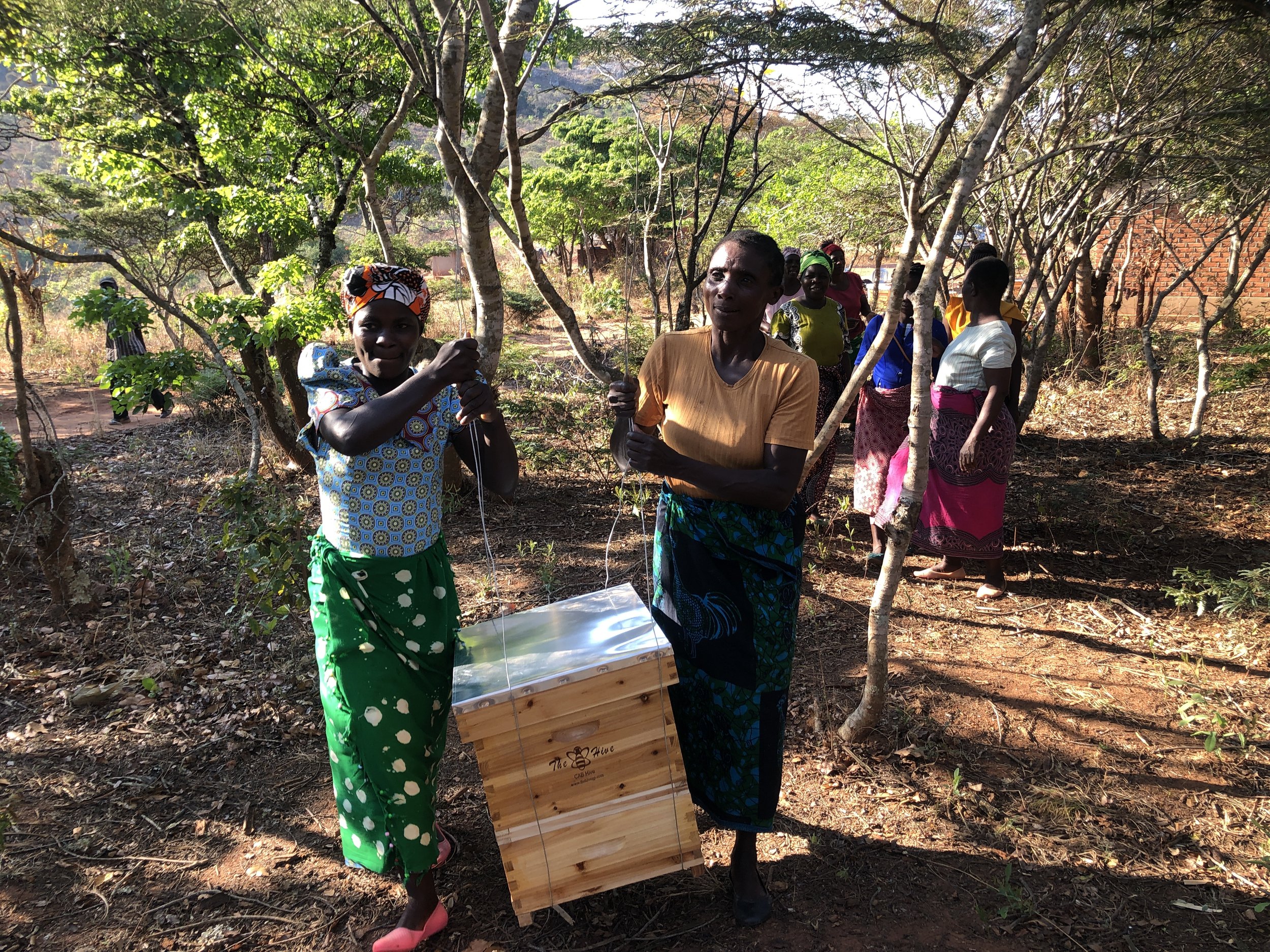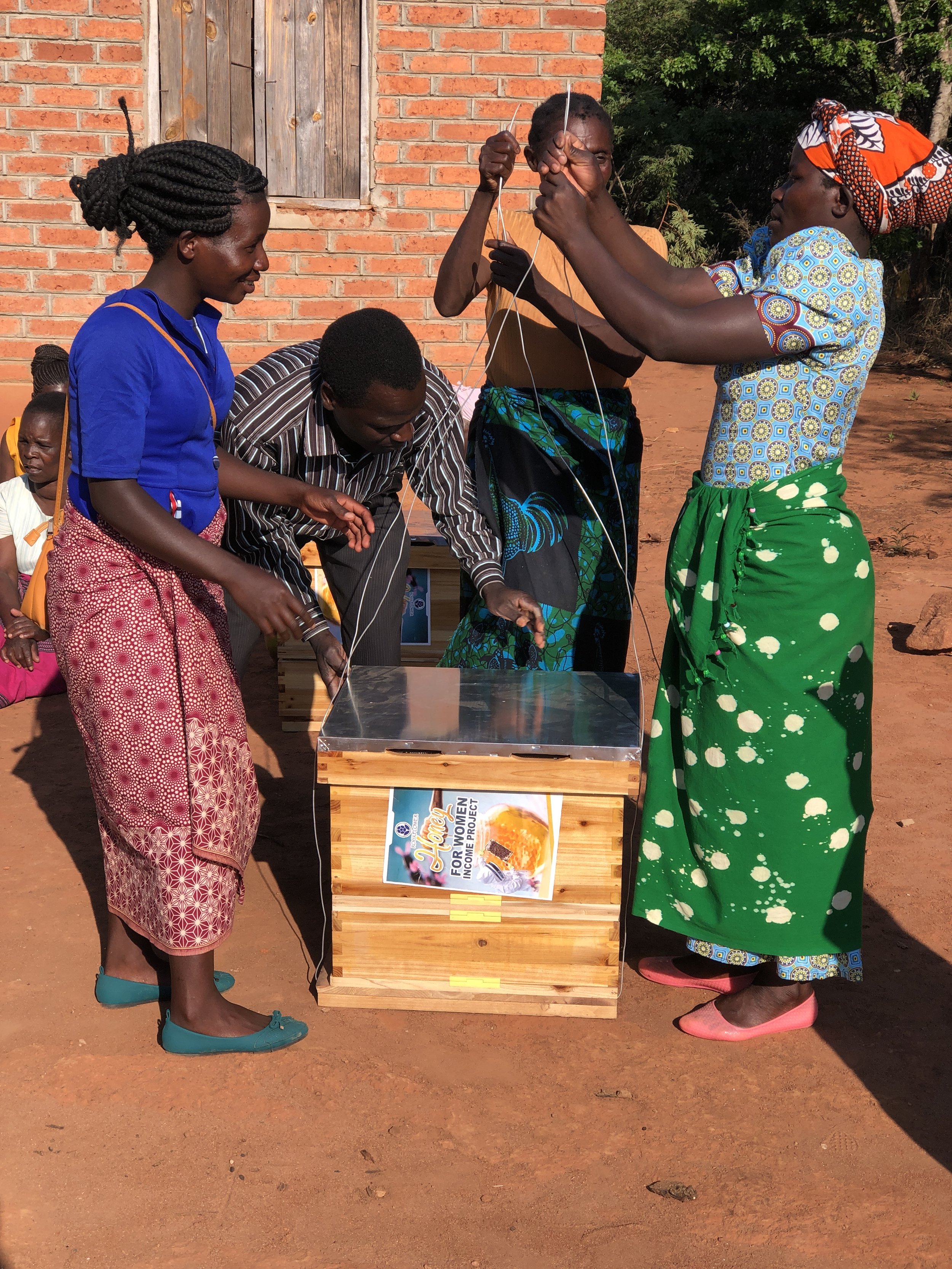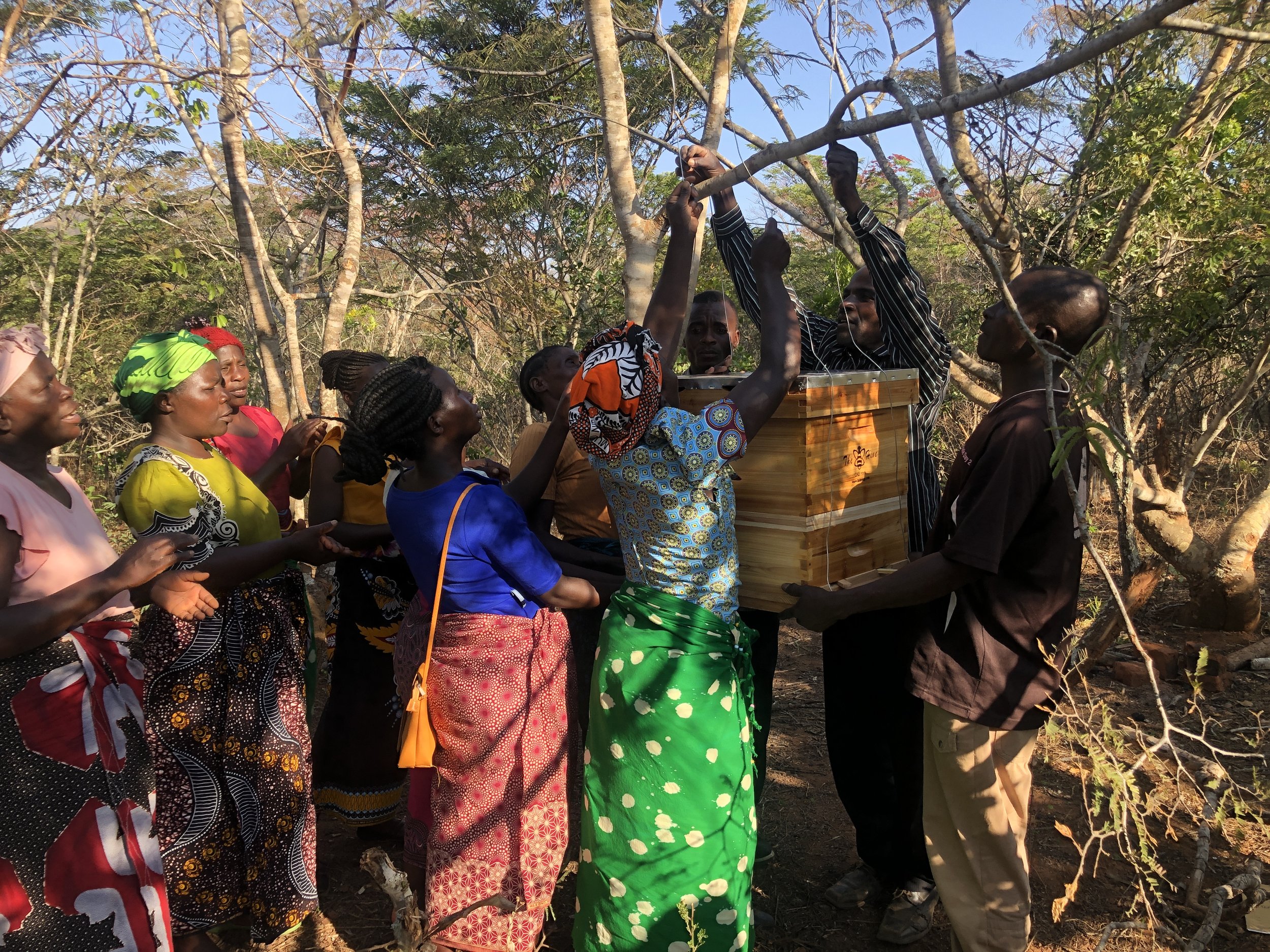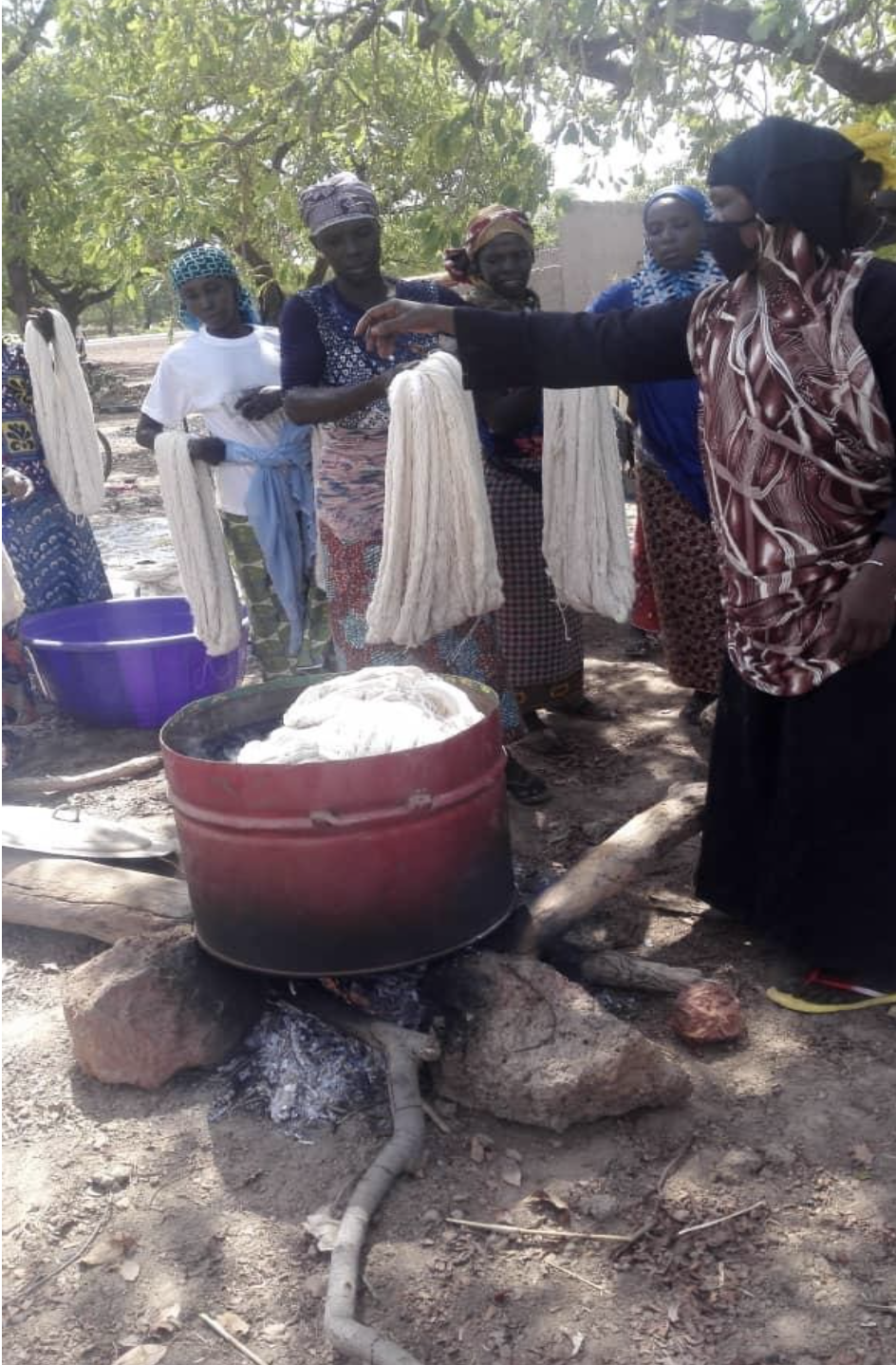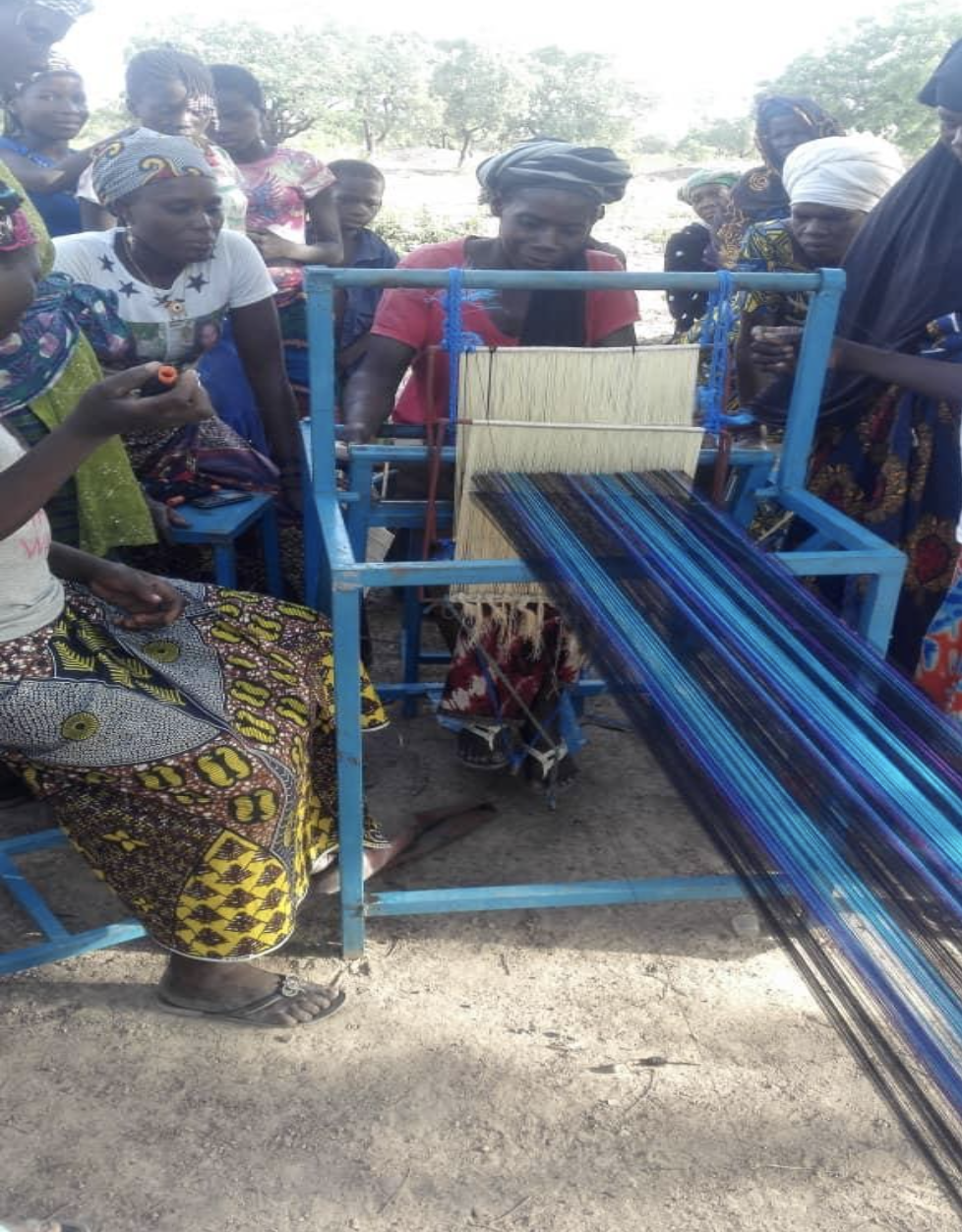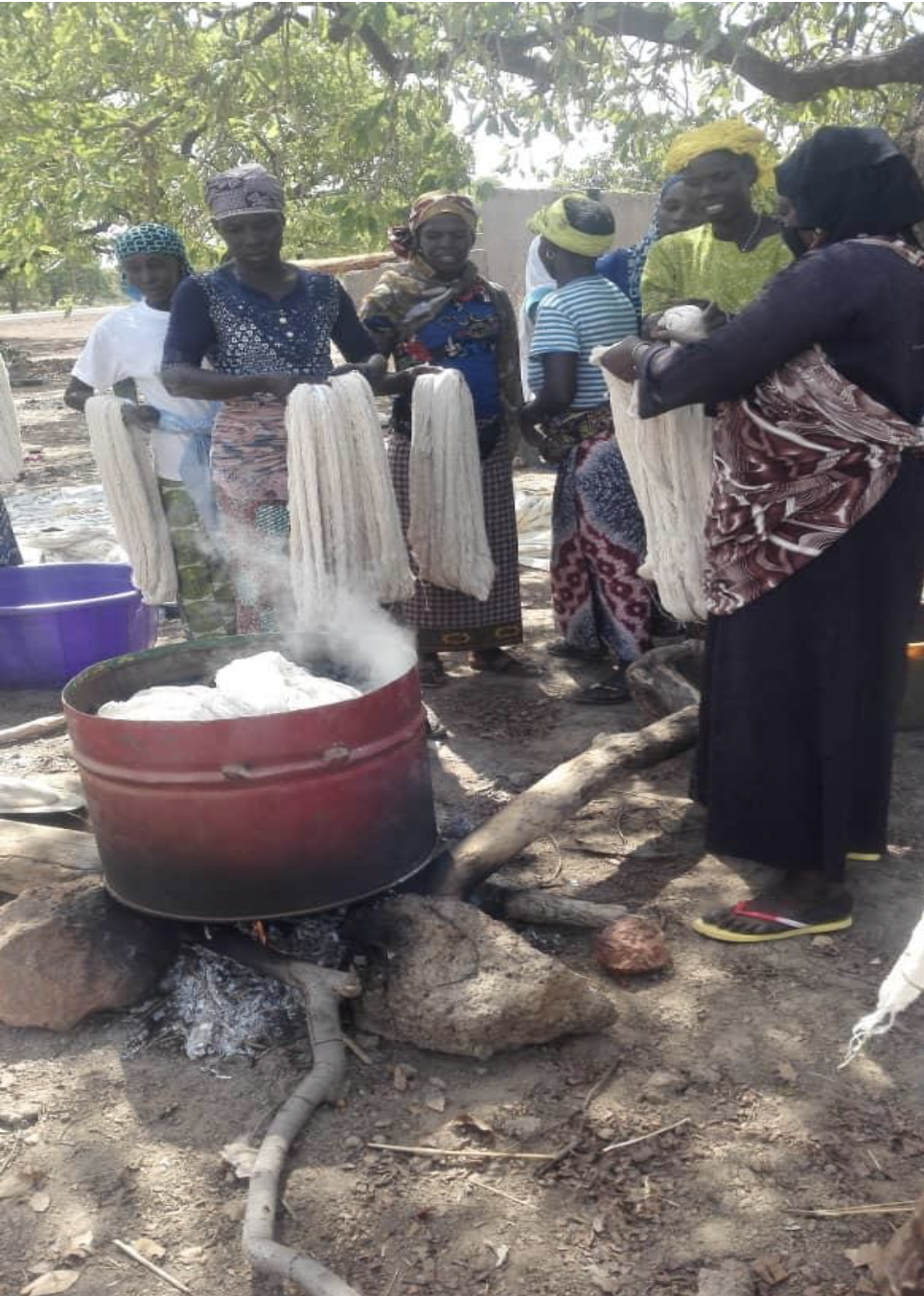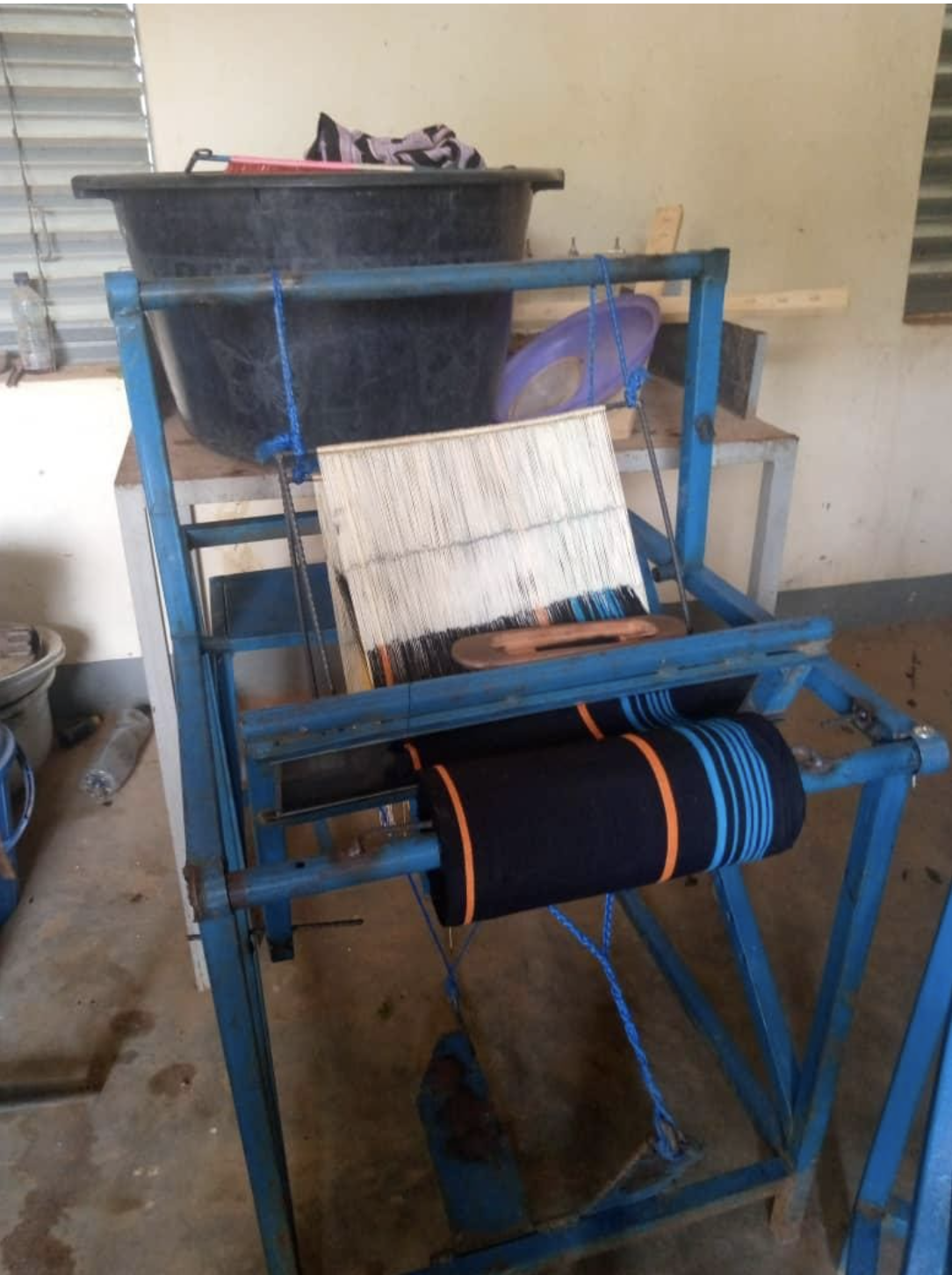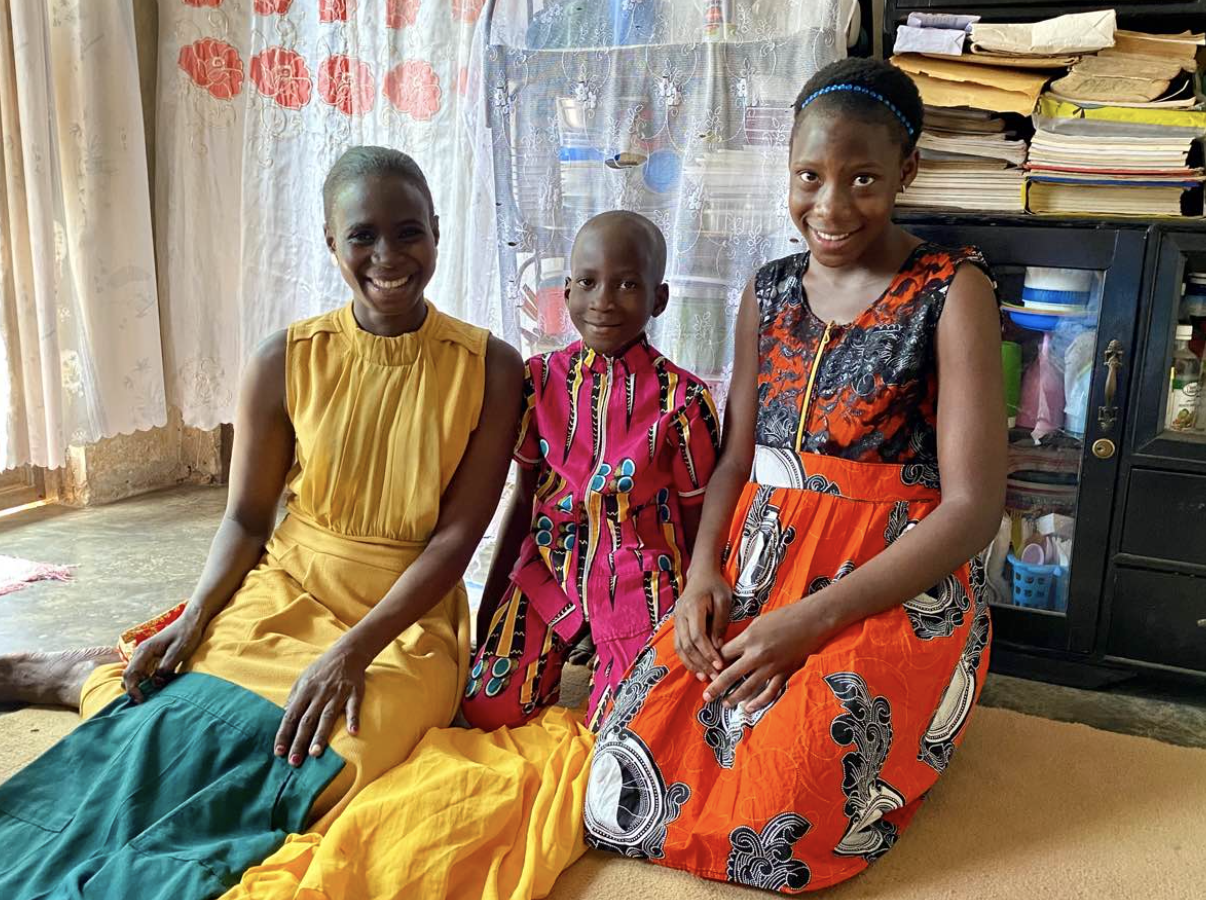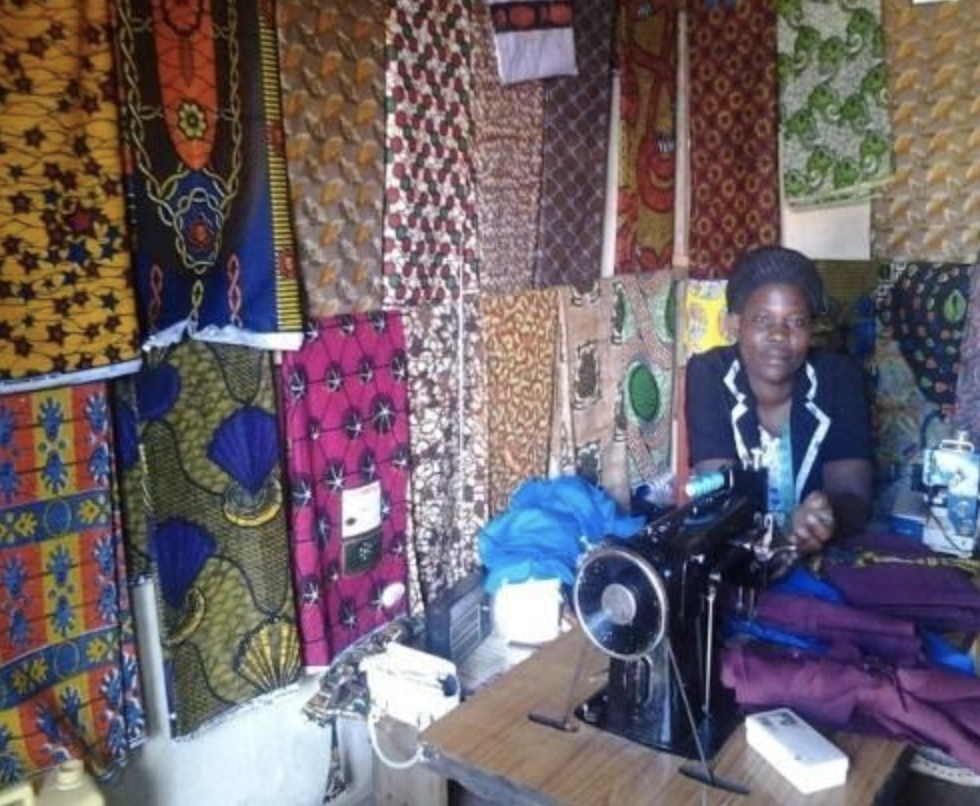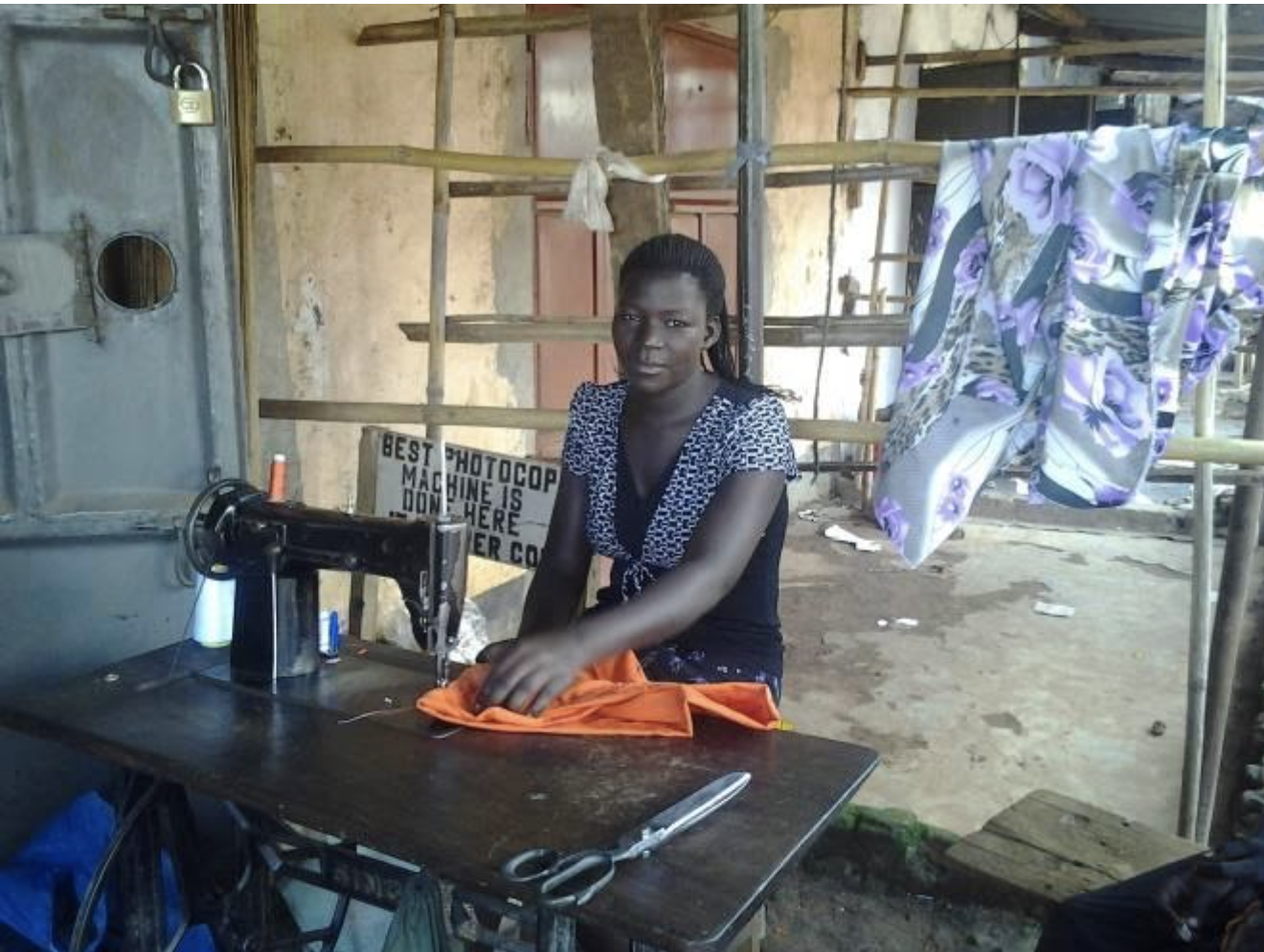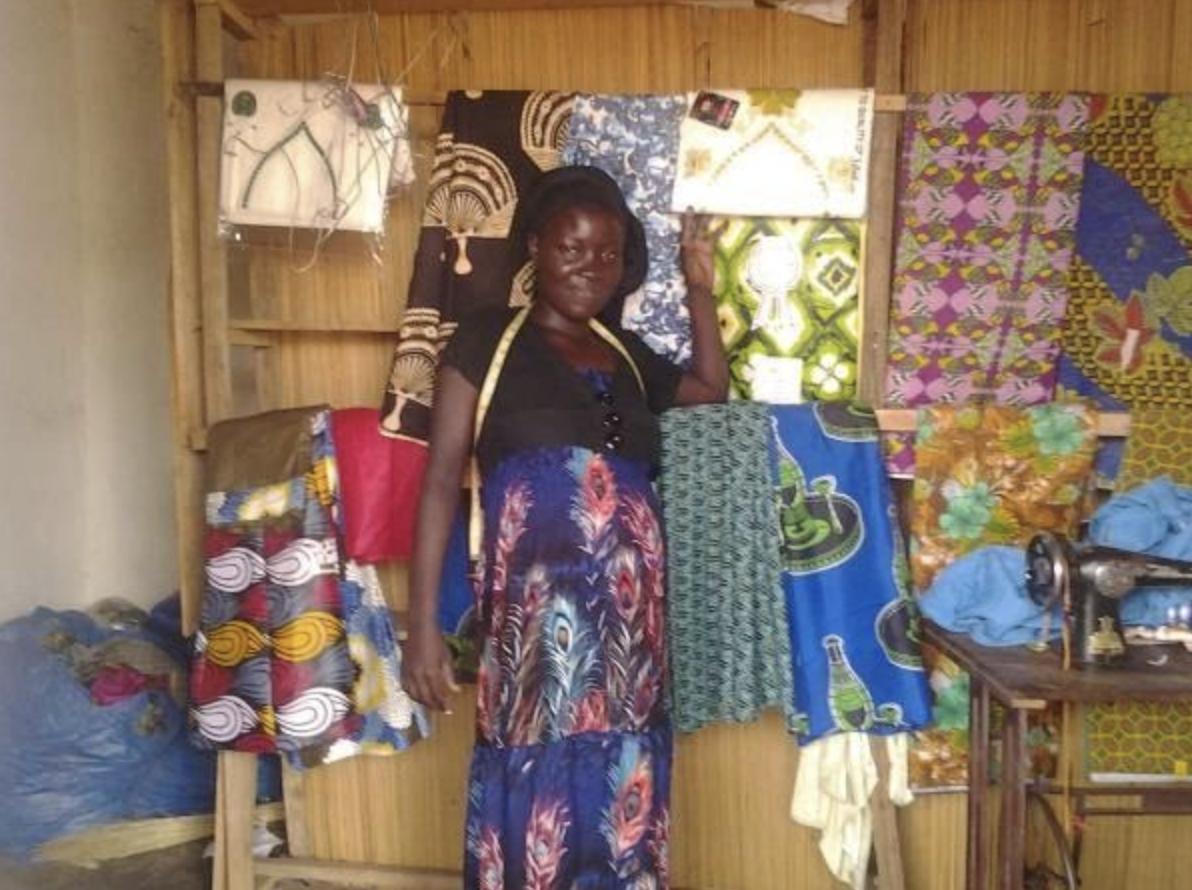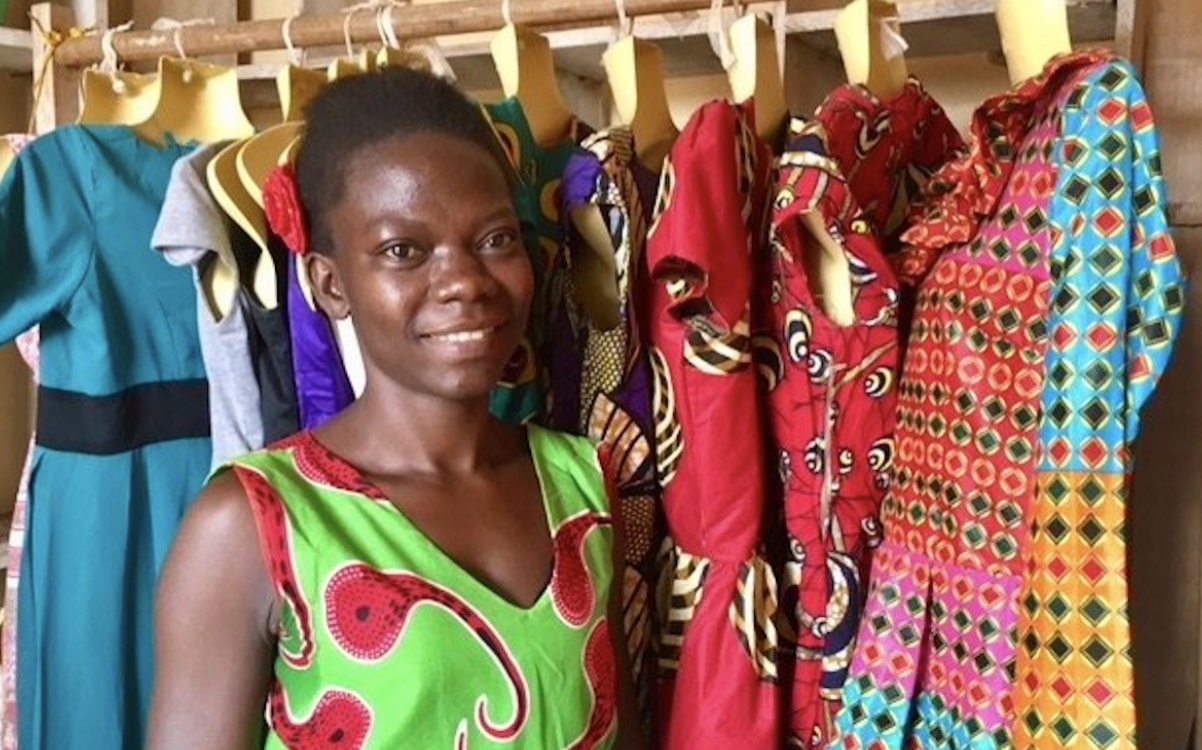By providing a broad overview as to what peace and security means in different contexts and settings, but then to show how this directly affects communities and individuals, we were able to ensure that the partners on the call could draw a line between the information shared and their daily experiences.
Peace and Security is not just the absence of war, it is a multi-layered understanding of the needs and wants of different groups and communities, at a personal, local, national and international level.
With Dr. Alice, Rajaa, Sahana and John, we had a wide ranging conversation on what it takes to develop systems and strategies to counter violence, greed and injustice. All of them have deep experience and a personal commitment to building a world in which peace is paramount.
Dr. Alice delivering her remarks in French, (our grateful thanks for translation by Will Burgat) brought us into the heart of the issue, by describing the daily task of helping victims of atrocities become survivors and then contributors in the redesign of their communities through their lived experience. There was a deep weariness in her voice as she described the continued witnessing of rape and murder and the daily repercussions of a reality in which Security Resolution 1325 does not actually live up to its intention. There are still not enough women involved in the concrete actions to bring about peace. In 2020 she was involved in talks with armed groups in order to bring more women to the discussion but was met with push back and the suggestion that they should only come if they bring women with weapons to the talks. Her plea was to ask how the UN can find a way to insist that more women from civil society are present at the “real peace talks” not just the secondary track two discussions.
Rajaa shared the deeply personal experience of her father, a policial and human rights activist, having been detained and tortured in a Syrian prison for almost ten years of her life. When the uprising began in Syria in 2011 she was studying for her PhD in Mathematics in the US, but returned home to Syria knowing that she had to be involved in documenting the human rights abuses. She started CCSD with a group of activists determined to see a better future for the women of Syria, and continues to engage with civil society activists, youth leaders and all those wishing to see a greater emphasis on the women, peace and security agenda. She is extremely keen to ensure that all the lessons learned from the last ten years of work in Syria be shared with those in conflict situations so that all of the rich resources and learnings can be put to good use.
Sahana gave us a detailed analysis of the work of bringing multi stakeholders together in order to ensure the agenda of Women, Peace and Security is put front and center in the minds of policy decision makers. She applauded the partners on the call for their bravery and willingness to imagine a better and more peaceful world and for their consistent daily work to make this a reality. Indeed, Security Council Resolution 1325 came from women in the Global South saying to those in the North - “What you are doing is not working, we need a better way” . She also reiterated the need for a collective vision of what peace would look like, and to take a step back to assess what is working and what is not. By being willing to co-create something better there exists a real potential for a more secure world. .
“Women want to change the dominant security narrative … for the benefit of everyone. We can change the narrative of what is possible by seeing through a feminist lens” - Sahana Dharmapuri
John took us deep into the reality of the “captured state” - which is what happens when war economies take hold and become a perpetual money making machine for a few corrupt individuals. In order to tip the balance for those living in these countries who want an even playing field, the importance of using the tools of network sanctions and challenging the incentive structures that reward violence and authoritarianism cannot be overstated. John’s decades of work in the DRC meant that he was particularly in tune with Dr. Alice’s deep feelings of frustration and shared how his own journey had evolved as an activist, to focus on dismantling the means by which war machines and kleptocracies thrive. This was a timely discussion, as his piece in Project Syndicate last week demonstrated on the occasion of Secretary Blinken’s visit to the Congo and Rwanda.
We finished with a conversation on why Peace and Security is so difficult to fund, and not just in the world of philanthropy. As the world keeps spending trillions of dollars fighting wars only to rebuild after the destruction, a tiny portion of that invested in prevention would bring untold dividends.
“It's so hard to quantify the results of investments in peace” - John Prendergast
Conclusion:
This was just the beginning of a series of workshops that Rockflower will be producing throughout the year as we digest the conversations and dig deeper into other ways to ensure that our partners have access to a shared platform of tools, techniques and approaches that can continue to contribute to the improvement of life and well being for so many women and girls and their communities.
We are grateful to everyone who participated and thank all of our speakers for their insights, vision and clarity.

